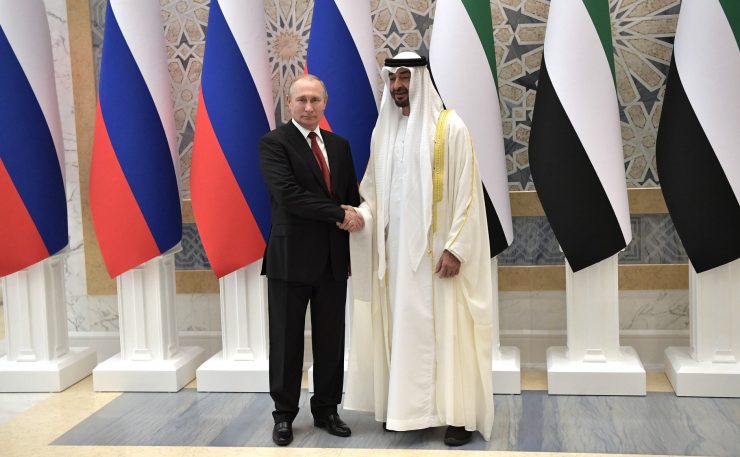
While the United States and the European Union are unified on the issue of Ukraine, the UAE has chosen a neutral posture, which has generated worry in Western capitals.
Consequently, the Emirates, in pursuit of long-term economic growth, is taking an “easier” approach to commercial issues, bolstering its position as an international transportation hub connecting Africa, Asia, and Europe. The openness of the Emirati economy has drawn many Russians caught up in Western sanctions, for whom asset transfers in the UAE have become a way out of a financial deadlock, as well as a free platform for real estate transactions and commerce.
Furthermore, the Central Bank of the UAE (CBUAE) granted a license to Russia’s MTS bank in 2022, which opened its branch in Abu Dhabi. According to the CBUAE’s statement, the project is being implemented “to support legitimate trade between the two countries and service the Russian community in the UAE.”
The expanding Russian presence in the Emirates was also noted by Maha Abdelmajeed, Commercial Manager at VTTI Fujairah Terminals, during the recent Fujairah Bunkering & Fuel Oil Forum (FUJCON 2023). In 2022, the UAE became one of the largest centers for Russian oil exports to India and other countries.
The contact with the Russian PMC Wagner in Sudan demonstrates Abu Dhabi’s distinct role. For several years, the UAE has been the primary consumer of Sudanese gold. According to the Central Bank of Sudan, the turnover was $1.5 – $2 billion per annum. Emirati consumption of Sudanese gold exports has increased, including after the PMC Wagner became active in that sector.
At the same time, Abu Dhabi is expanding commercial ties with Moscow’s CIS partners. This is reinforced by Belarusian President Lukashenko’s recent visit to the UAE, where he signed a series of memorandums on collaboration in areas of mutual interest during talks with UAE President Sheikh Mohamed bin Zayed Al Nahyan. As a result, the UAE has become the Persian Gulf’s largest investor in the Belarusian economy.
Another example of rapprochement with the CIS was the signing of a deal in digital technology and artificial intelligence between G42, which is part of a business empire overseen by its chair, Sheikh Tahnoon bin Zayed al-Nahyan, and the Kazakh government.
However, the Emirati activities infuriate the West. As a result of its steadfast stance toward Russian residents’ economic dealings on its territory, the UAE was added to the Financial Action Task Force’s “gray list” on money laundering.
In addition, in February 2023, US Under Secretary of the Treasury for Terrorism and Financial Intelligence Brian Nelson visited the UAE. According to official announcements, the American official visited a number of ministries and departments, as well as the local central bank, to discuss combating money laundering and bypassing US sanctions imposed on Iran and Russia. Prior to the American’s visit, the US Department of the Treasury issued a statement warning that “individuals and institutions operating in authorized jurisdictions” may lose access to major Western markets if they conduct business with sanctioned organizations. This actually means that Brian Nelson has arrived to voice Washington’s displeasure with the UAE’s lack of coordination on the issue of anti-Russian sanctions support.
The United States continues to be shifting the playing field for investments in the Emirates. Some foreign companies share the concerns of US authorities because they worry that doing business with the UAE could put them at danger of becoming close to Russian firms and individuals who are the target of Western sanctions. In such cases, big business tries to do a thorough audit of the object of investment, thus delaying transactions in every way.
Will Abu Dhabi be able to keep its ties with Moscow without jeopardizing its own interests? The question remains open.
Madi Khalis Maalouf, a political observer, exclusively for the online magazine “New Eastern Outlook.”
